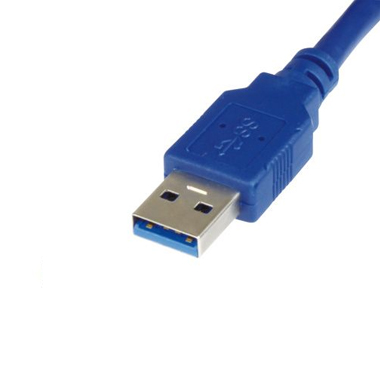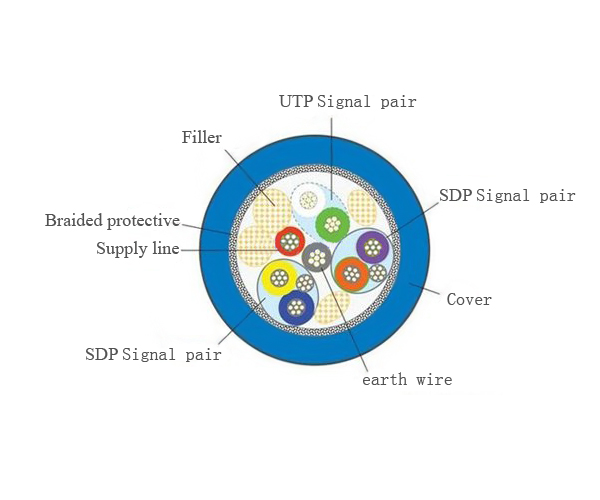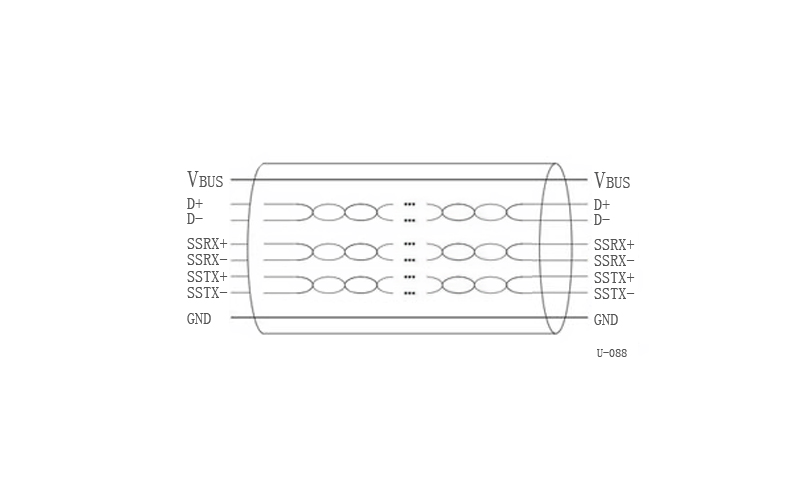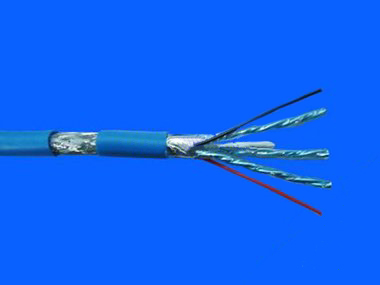Physical diagram of USB3.0 data cable wiring
USB3.0 data cable


Sectional view of USB 3.0 data cable
The performance of USB 3.0 data cable for speeding is entirely due to technical improvements. Compared with the current USB 2.0 interface, USB 3.0 adds more parallel-mode physical bus. For USB 3.0 interface size standard, you can pick up a USB cable around and look at the interface section. On the basis of the original 4-wire structure (power supply, ground line, 2 data lines), USB 3.0 data cable added 4 lines for receiving and transmitting signals. As a result, there are a total of 8 lines in the cable or on the interface. It is the additional 4 lines (2 pairs) that provide the required bandwidth to support speeding. Obviously, 2 lines (1 pairs) on USB 2.0 are not enough.

Structure of USB 3.0 data cable
In addition, its signal transmission is still controlled by host but is asynchronous. USB 3.0 data cable takes advantage of bidirectional data transmission mode instead of half-duplex mode of USB 2.0. Simply put, data flow in one direction, simplifying the time consumption caused by waiting.
In fact, USB 3.0 does not take much of advanced technology that is rarely heard of, but theoretically improves the bandwidth by 10 times. As a result, it is more affable and friendly. Once SuperSpeed USB product comes out, it can make it easy for more people to accept and make better customization products.

Anatomical diagram of USB 3.0 data cable
●
Transmission rate of USB 3.0 data cable:The actual transmission rate of this new interface with ultra-high speed is approximately 3.2Gbps (that is, 400MB/S) while theoretical maximum rate is 5.0Gbps (625MB/S).
●
Transmission principle of USB 3.0 data cable:USB3.0 introduces full-duplex data transmission. Two of the five lines are used to send data, the other two are used to receive data, and one is ground line. That is to say, USB 3.0 can read and write synchronously at full speed. Previous USB versions did not support full-duplex data transmission.
● Working power of USB 3.0:
The load of
